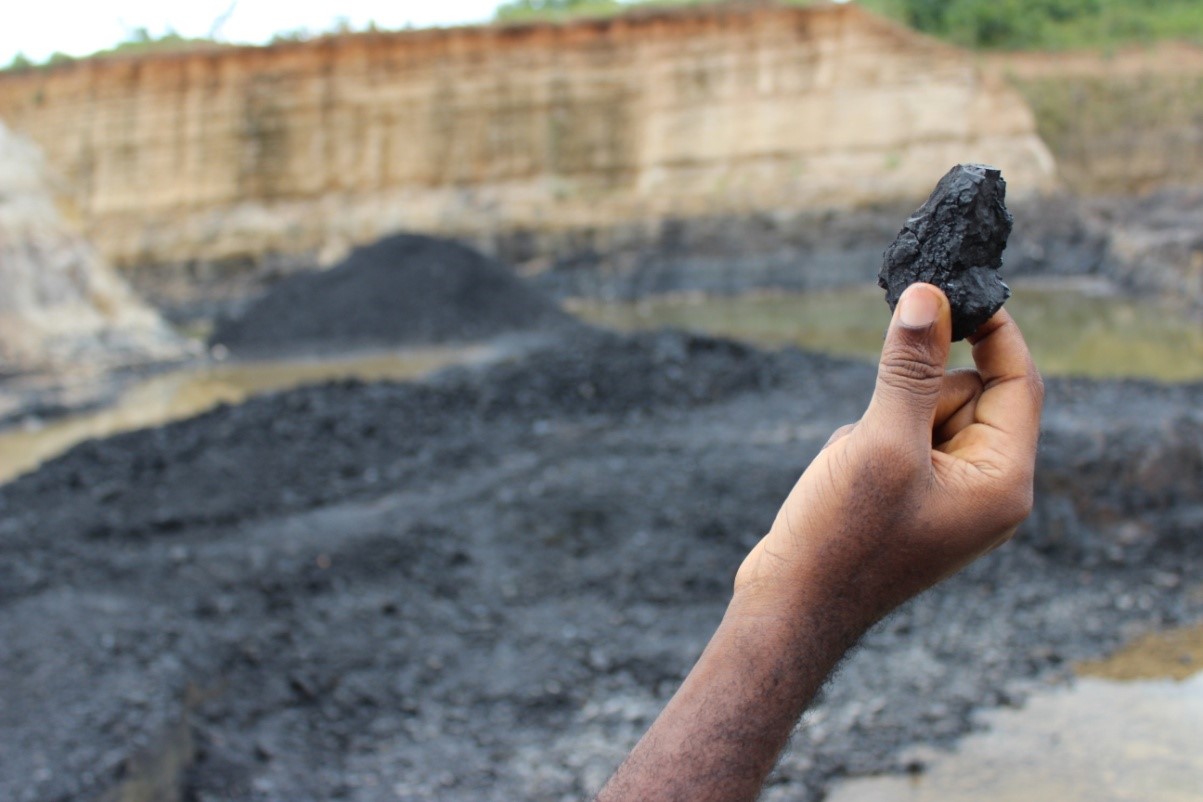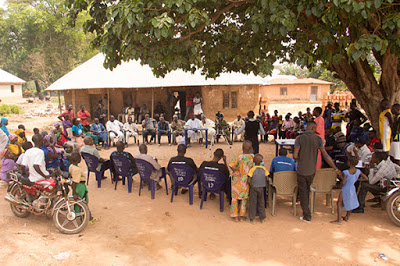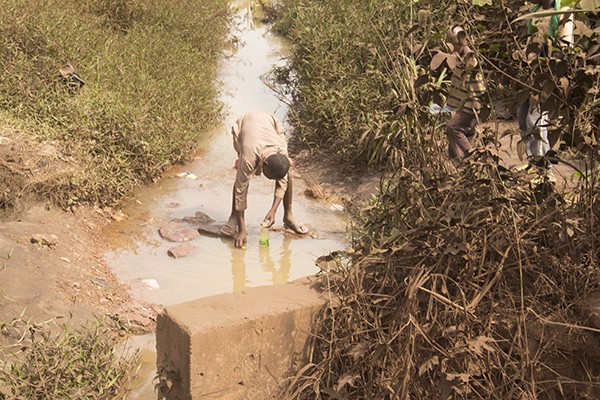
By Greg Odogwu
“No matter how drunk you are, you can’t sleep because of the noise of the (coal) crusher!” – Okobo community resident, November 2016.
The village is small and isolated. But as you approach, the heavy-duty trucks keep passing, spewing up clouds of blazing dust as they race away with their cargoes of coal. The hapless villagers hang on their floppy doorposts and watch. The children play, but there is a cautious air mixed with their innocence.
They are witnesses to a grand rape of their community. One of them just died; the child was crushed to death by a falling wall in their tiny village school. The coal miners caused it. Their machines always shake the whole village as they vibrate.
The only stream in the village is now polluted. It is colourful, glittering with rusty brightness, which clearly shows dense presence of heavy metals. The air is contaminated too – laden with carbon and perceptibly thick with coal particles. And because it is dry season, there is visible mixture of coal dust and brown sand all over the ground and the surrounding farms.
Most of the villagers float about jobless, because their farms are now mining sites. Anywhere one turns, there is no mistaking that feeling of being in the midst of a people under siege. Even the inanimate objects stare back at you with a tentative hope. “Could this be our messiah?”
This is the present state of Okobo, a rural community in Ankpa Local Government Area of Kogi State; accessible through the Ankpa-Enjema road from the state capital, Lokoja. Following the decision of the Federal Government to generate 30 per cent of its power from coal, the ETA Zuma Mining Company obtained a licence to mine coal at Okobo community which it intends to use to run its proposed Itobe coal power plant.
Mining activities have been going on in Okobo since 2012; and as the days go by, the village gets sucked down deeper and deeper into a whirlpool of environmental decay and social dislocation, as a result of egregious malpractice by the mining entity and negligence by government regulatory authorities.
To say that revived coal mining (for coal power) in Nigeria is a disaster waiting to happen is an understatement. The environmental catastrophe is already here with us. I witnessed it firsthand when I travelled in the company with some other stakeholders to Okobo last month, a site visit sponsored by Global Rights in conjunction with Heinrich Boll Stiftung.

After the visit to Okobo, it became clear to me that our government has yet to see that with its eyes on coal power, it is happily sitting on a dry keg of gunpowder. It seems we have not learnt any lesson from the Niger Delta situation. Obviously, when the government talks about power generation, it looks only at the meagre couple of thousand megawatts to be generated; and not on the humongous negative environmental and humanitarian impact it will incur.
Will there be future uprising from impacted communities? Will the health of millions of Nigerians be adversely affected? Will there be poisoned land begging for remediation (as Ogoni)? For answers, let us take a trip to Okobo.
At the inauguration of the coal mine site in Okobo, a few years ago, Governor Idris Wada promised the host community that he would provide them with a cottage hospital fully equipped with a medical team, a water treatment plant for potable water and the relocation and upgrade of the primary school in the area as mark of his support.
In 2012, the chairman of the mining company stated that the mines had provided 300 direct jobs with a projection of raising it to 5,000 in two years. We are now in 2016, yet there is no single evidence to show any fulfilment of the government’s promises. There is also no evidence that the company has created these jobs for the villagers.
In fact, Okobo has no visible social infrastructure. The only health facility in Okobo is the ETA Zuma company-owned staff clinic, to which the community has no access. The mining company had to construct a block of primary school building for the village when its mining activities caused the collapse of the existing unsound primary school block, which claimed a pupil.
Notably, in a situation reminiscent of the situation in other resource-blessed parts of Nigeria, the company is currently embroiled in a crisis with its host community. Firstly, the two parties have yet to agree on a Community Development Agreement. Secondly, the youth leader of the community was recently nearly murdered in an attack that left him with one eye. The victim has been championing a campaign that the mining company should appoint its Community Relations Officer from Okobo community indigenes instead of an outsider.
The Chief of Okobo, Aminu Abubakar, said, “It is sad we don’t know what to do. But we depend on God. The company has been treating us as if they are our colonial masters. All their promises and what they said they would do for us have turned out to be lies. All the people telling the truth are targeted. Nobody can sleep because of the noise and the dust. We don’t have economic trees anymore. And they (mining company) tell us there is nothing we can do (to them)!”
However, ETA Zuma Company pointed out that it built a school for the community and provides a monthly stipend of N100, 000 for the school operations. It also supplies the community with water using water tanks. For other infrastructure, like roads, that the host community demands, it is alleged that the company said it will supply that when it starts making money from its operations.

Making money and supplying power to Nigerians will definitely come with a heavy price. The question is whether the risk is worth it. The environmental problems associated with coal mining can be devastating and difficult to reverse, and it is at this early stage that our government should consider the dynamics and not when it is too late. Other countries are shutting down their coal power plants; why are we going backwards when we should be looking forward?
I recently submitted a piece which examined the Nigerian Minister of Finance, Kemi Adeosun’s comments on the West not supporting Nigeria’s plan to go towards coal for power generation. She called them “hypocrites” for discouraging us, considering that many developed countries still depend on coal power plants. She said they were only eager to help us if we were talking about renewable energy.
Therefore I repeat, shout as we can, the world will not listen to us. Truth be told, if we insist on going the way of dirty coal, then we are the hypocrites. This is because we signed on to a global agreement promising the world we are going to contribute to stopping climate change. This we can do by embracing renewables like solar, wind, biomass, etc.
Coal is the highest emitter of greenhouse gases that cause global warming. According to experts’ calculations, if we generated 30 per cent of power from coal, then by 2030 – our emissions cut target timeline – we would not have been able to reduce even a single percent of emissions. Meanwhile, we promised the world we would reduce it by more than 20 per cent. Now, who is fooling who?











